There are two camps when it comes to the trendy philosophy of achieving Financial Independence, Retire Early, aka FIRE.
One camp mocks its following for being a group awash in privileges, personifying the excess and lack of self-awareness often found in the tech industry, where the movement finds its roots. The other camp is full of dedicated disciples, enthralled by the idea of freedom and determined to achieve it — as soon as possible.
No matter which camp you’re in, one thing’s not in doubt: the ideas behind achieving FIRE have spread like wildfire in the form of books, talks, forums, meetups and podcasts. While the road to achieving FIRE varies from individual to individual, the goal is the same: eliminate money as a deciding element in life decisions and become a master of your destiny.
Here’s how to get started on your path to FIRE.
Join an In-Person Meetup or Online Forum
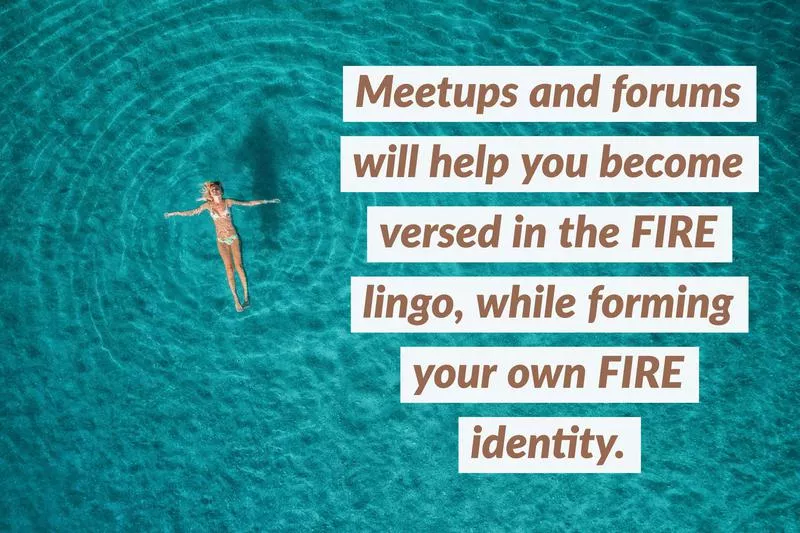
Getty Images
A quick scan on a website like Meetup.com should yield various get-togethers that aim to bring together FIRE enthusiasts or those who are just curious to learn more about it. The usual aim: Create a supportive network that shares information and provides a social outlet for people with common financial goals.
Online forums provide even more depth of discussion. Reddit alone is full of threads that focus on specific questions or concerns. There are tips and tricks for minimizing costs without sacrificing lifestyle, and entire chats about how to decide on the amount of money it will take to retire. That’s your FIRE number.
You’ll likely meet “lean” and “fat” FIREs. The former describes those who live minimally while saving a huge chunk of their income. The latter represents high-salaried people who tend to pour a lot of their time and energy into their well-paying yet demanding jobs, with the goal of slowing down at 35 or 40.
These meetups or forums will help you become well versed in the FIRE lingo, while forming your own FIRE identity.
Read, Listen and Watch
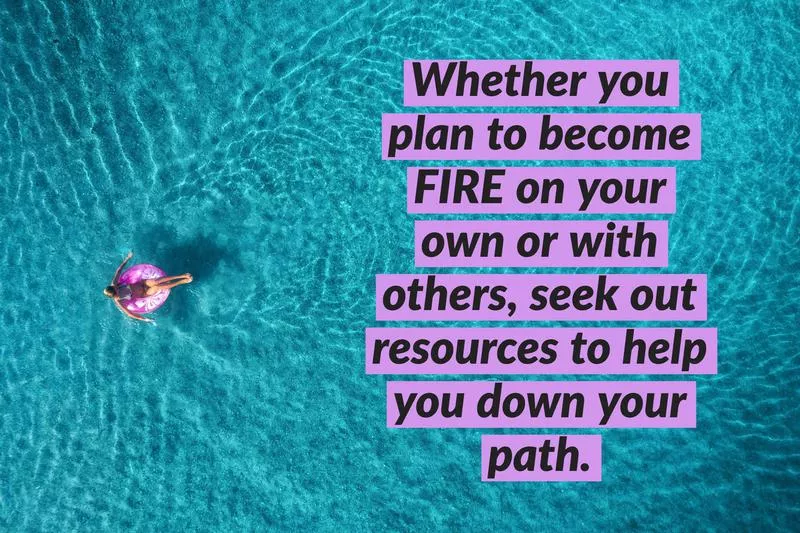
Getty Images
The first book you’ll probably want to pick up is called “Your Money or Your Life” by Vicki Robin. Robin, whose book was published in 1992, is now in her 70s and has found a following among young FIRE followers. She credits the current economic times, with their insecurity and disparity, for the newfound interest in her advice.
Blogs and podcasts also abound on the topic, including Mr. Money Mustache, and Early Retirement Extreme. For podcasts, try “Mad Fientist” and “ChooseFI” to start.
The documentary “Minimalism” examines the ills of consumerism and the lives of people who choose to live with less. Another documentary in the works, “Playing with FIRE,” follows a family’s quest to achieve financial independence by the age of 40.
Whether you plan to become FIRE on your own or with others, seek out these or other resources to help you down your path.
Write Down Your Goals

Getty Images
Do you plan to retire at 35 or 45?
Do you need a small apartment in the city or a big house in the country?
What kind of lifestyle do you like?
What luxuries can you give up and which are the ones you can’t live without?
Do you plan to have a family or live alone?
Whatever your goals, it helps to write them down to define for yourself what “financial independence” means or what makes for “retiring early.”
For Francis, a 21-year-old student at University of California, Berkeley, and an aspiring FIRE follower, setting goals has helped him prioritize his life. His main goals include finding a well-paying job in the tech industry, building an emergency fund and saving for a rental property in the future.
He first became interested in the movement when his dad and grandfather told him to invest his birthday money. He was 15. "I realized this is a real viable way to make money work for you, [rather] than to work for your money," he said.
Create a Detailed Plan

Getty Images
Achieving FIRE, especially in the current economic climate, is challenging at best and impossible at worst. Going into battle without a plan is a sure-fire way to fail.
Creating a detailed plan should include everything from your FIRE number — the amount of money you need to retire according to your needs — your income-generating opportunities, your desired living conditions and your projected expenses over the years, at the very least.
Having a written plan will help with accountability, as well as tracking progress. Also, have a timeline where you can project when you should be hitting various goals. That should help you stay on track, or get back on track should an unplanned circumstance derail you.
Commit to FIRE
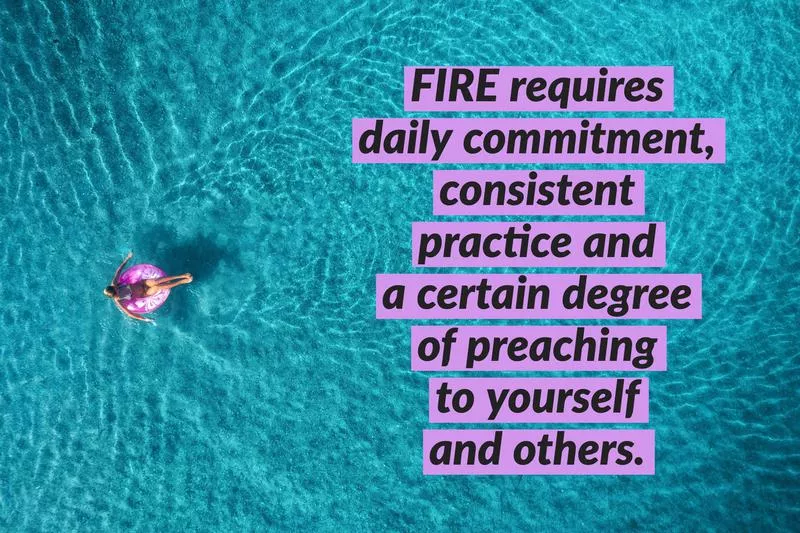
Getty Images
Following the rules and principles of FIRE can sometimes feel like a religion. It requires daily commitment, consistent practice and a certain degree of preaching to yourself and others.
If you expect results, you can’t dip in and out of this movement. For loyal practitioners, FIRE is an identity and a lifestyle, rather than just a few tried and true methods of saving money.
The FIRE lifestyle goes against the norm. If you plan to stay in the game, prepare to be steady against criticism and to push ahead with commitment despite all doubts.
Set up Your Home
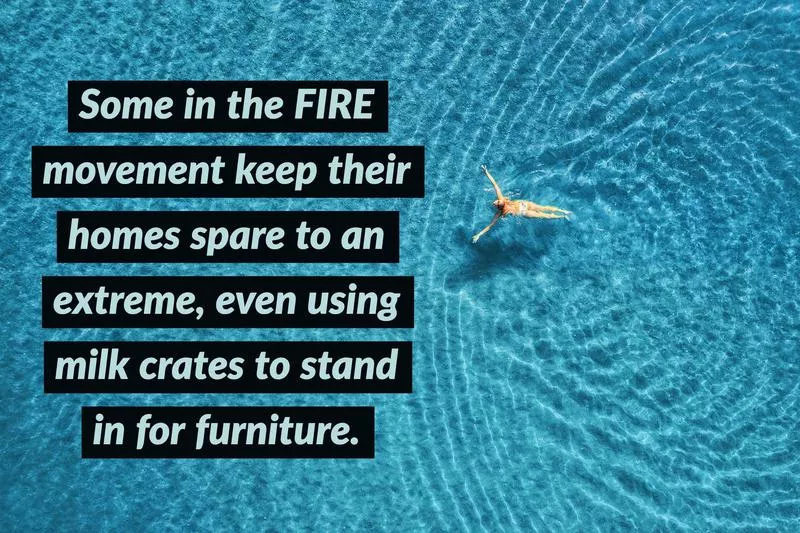
Getty Images
If you want to achieve FIRE, think about where and how you live.
NerdWallet has a great cost of living calculator that allows you to compare what you need to earn to afford to live in different cities. Based on your annual salary, you might consider avoiding expensive and large urban centres like New York, Los Angeles or San Francisco.
Francis is already considering the location of his apartment, even before he gets a job. He wants to make sure that he won’t need to buy a car, forgoing the expense of car payments, gas and insurance altogether. He also abstains from big electronics purchases, other than tools he’ll need to advance and grow his career.
Many of those in the “lean” camp of the FIRE movement keep their homes spare to an extreme, even using milk crates to stand in for furniture that may otherwise seem decorative. Others use Craigslist or eBay or hand me downs for the rest of their furnishings.
Pick your Hobbies Wisely
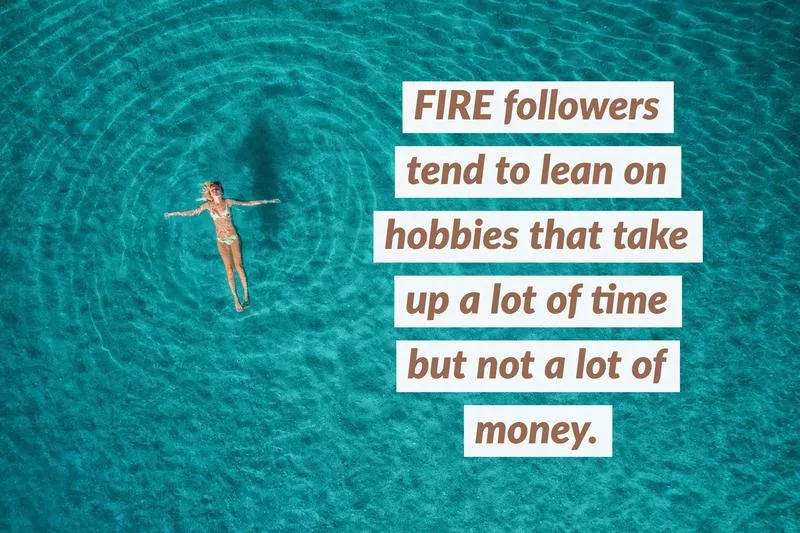
Getty Images
Hobbies can be as expensive, if not more so than your daily expenses.
If you want to take up photography, for instance, gear alone can run you thousands of dollars. Art supplies easily cost another few hundred, if you’re taking up recreational painting or drawing. If there’s no extra cash to funnel into these hobbies, best to take up activities that cost nothing.
FIRE followers tend to lean on hobbies that take up a lot of time but not a lot of money. For Francis, this includes riding his bike or exploring nature.
Others recommend borrowing books from the library, taking walks around their cities or learning new skills using free online courses.
Do a Lot of Math
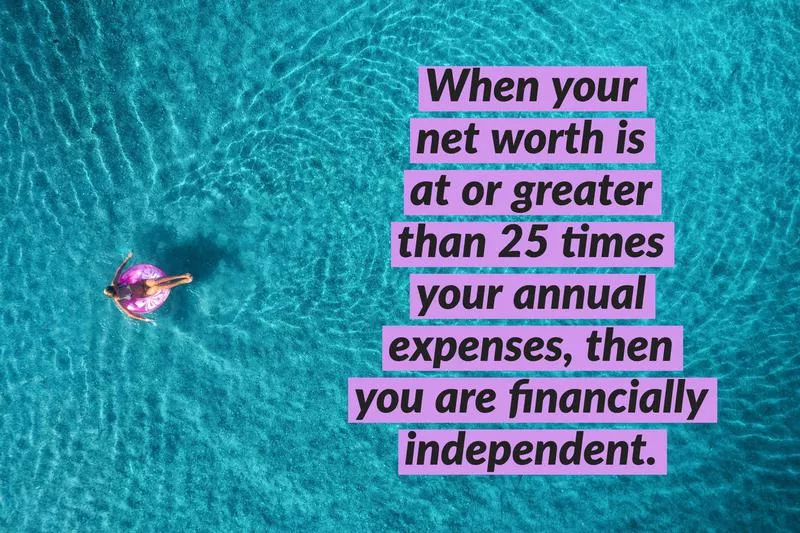
Getty Images
The Millennial Revolution has a MathShitUp-Inator, a set of tools that helps break down your financial targets. Others use this marker: When your net worth is at or greater than 25 times your annual expenses, then you are financially independent.
Francis estimates he’ll need about $2 million to retire. He’s been saving since he was 15. He’s 21 years old now, and he’s planning for independence between 35 and 40 years old.
Figuring out your FIRE number is also an important exercise for anyone who wants to jump on this bandwagon. Considering that FIRE followers tend to look ahead by decades, it helps to calculate as many projections as possible, one that takes life events, unforeseen circumstances, inflation and career trajectory into account.
Become an Investor
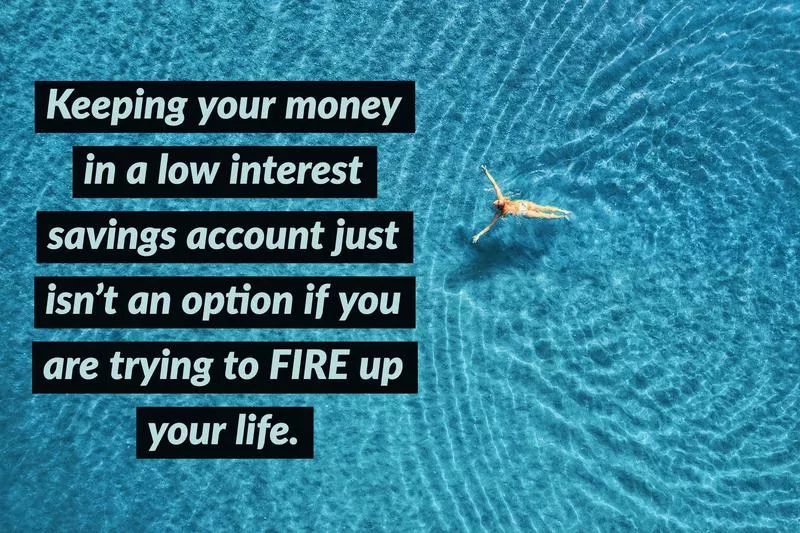
Getty Images
Many in the FIRE community follow the 4 percent rule. That’s the amount that can be withdrawn from your portfolio, while still leaving enough income invested to keep generating funds for the duration of the retiree’s life.
Since FIRE followers want to retire much earlier, leaving many decades to plan for instead of the standard two or three, it’s even more important to learn how to invest your money.
Sensing the trend of millennials’ brewing interest in taking care of their money at an early age, fintech start-ups have launched to cater to people this age. This means you don’t have to invest like your parents, if you want to invest.
Options include apps that quickly build your risk profile or answer your questions over chat or require only a minimum contribution to get started. Keeping your money in a low interest savings account just isn’t an option if you are trying to FIRE up your life.
Manage Your Relationships
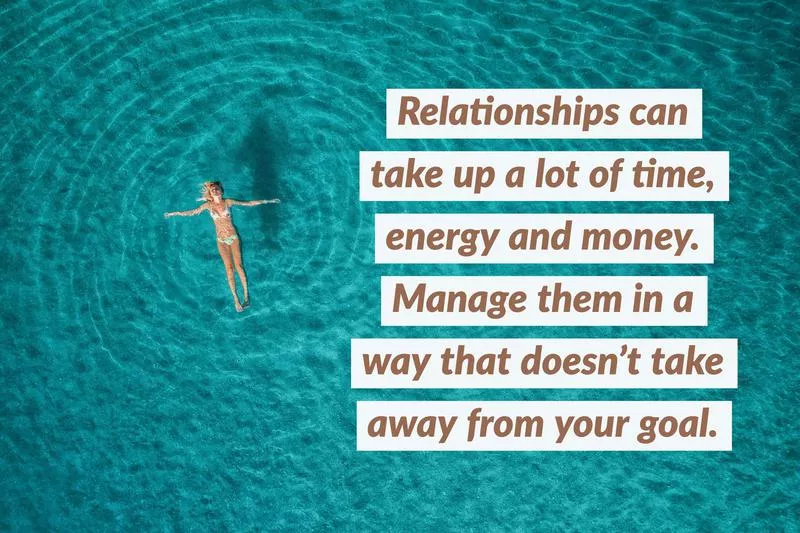
Getty Images
If your friends spend money, chances are you’ll spend money, too. Meetups exist within the FIRE community in order to provide support and social circles.
Francis says he’s very aware of picking friends or even partners that are in line with his philosophy. “It's definitely important to find someone who's not opposed to your plan,” he said. “One effective technique is to surround yourself with people who are active with free activities rather than those who like to eat out.”
Many threads on reddit explore the relationship complications that can arise when you’ve either achieved FIRE or are committed to achieving it. This includes how to tell friends and family about your financial situation, what happens if you appear selfish in trying to achieve your goals and how to explain to others exactly what you’re doing.
Trying to become FIRE may be an individual pursuit, but remember you won’t exist in a vacuum. Relationships can take up a lot of time, energy and money. Learn to manage them in a way that doesn’t take away from your goal.
Pick the Right Job
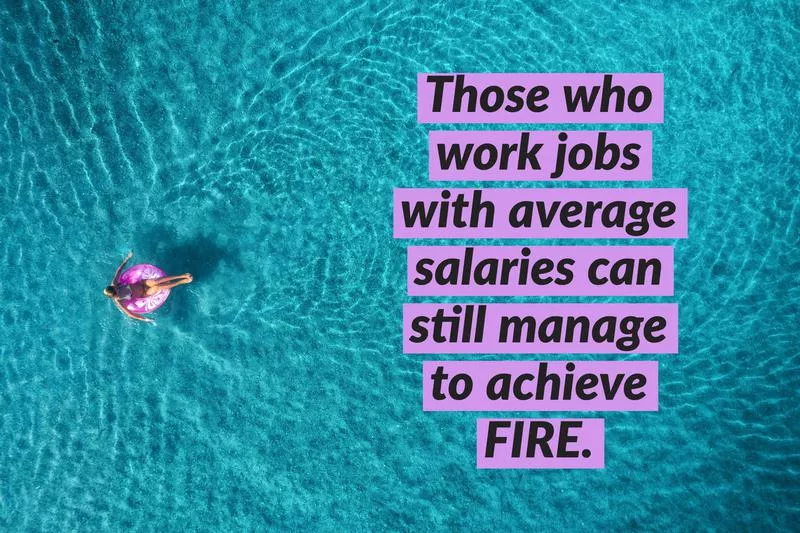
Getty Images
The FIRE movement takes a lot of flack because it often feels like it’s an option only available to high-earning tech workers, where a six-figure salary straight out of school isn’t out of the question.
However, there are examples of those who work jobs with average salaries who still manage to achieve FIRE. It’s all about understanding what you can do with your annual income.
No matter what, study average annual salaries before doubling down on a career choice. Glassdoor is a great resource to learn more about pay rates of different jobs in different cities.
Knowing your salary expectation can help motivate your career moves.
Consider a Side Hustle
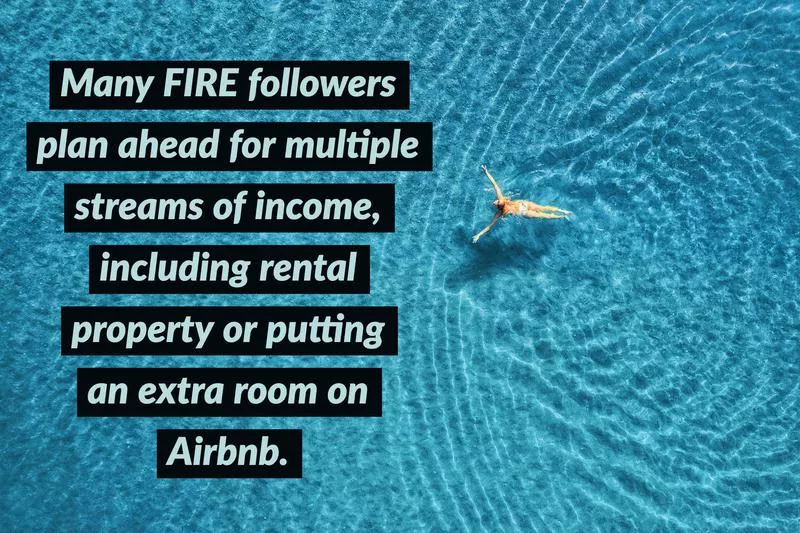
Getty Images
If you’re going to have an expensive hobby, might as well make money doing it.
These days, side hustle options abound. If you insist on owning a car, consider driving for Lyft or Uber a few hours a week. If you like photography, sites like Snappr.com can get you hired to cover family events or take vacation photos without the hassle of committing to a business.
Many FIRE followers plan ahead for multiple streams of income, including rental property or putting an extra room on Airbnb. Those who know how to create content tend to double down on their FIRE lifestyle by also writing books or blogs, or hosting videos and podcasts around FIRE.
Give up Frivolous Shopping
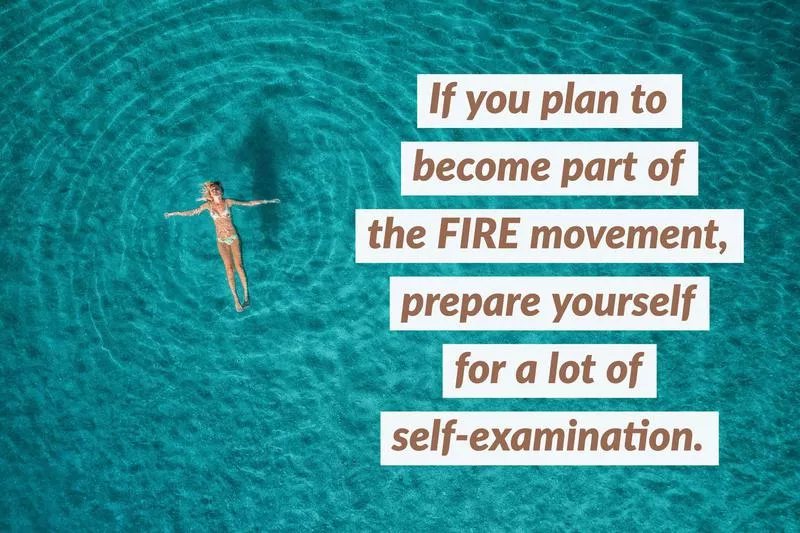
Getty Images
Nothing goes against the FIRE principles more than compulsive purchases.
FIRE followers often brag about their frugal ways or their smart spending tips. Francis, for example, wears the same pair of shoes daily — a pair of beat-up $25 Vans. In “Your Money or Your Life,” Robin urges her followers to think of their purchase according to their worth in time. For example, if you earn $25 an hour and want to buy a pair of $200 shoes, is that worth a full work day?
In the documentary “Minimalism,” an entrepreneur breaks down how many things he owns in total: 51. Another talks about how she gave up almost 90 percent of her things. The film provokes its viewers to think about their frantic consumerism.
If you plan to become part of the FIRE movement, prepare yourself for a lot of self-examination.
Track Your Progress
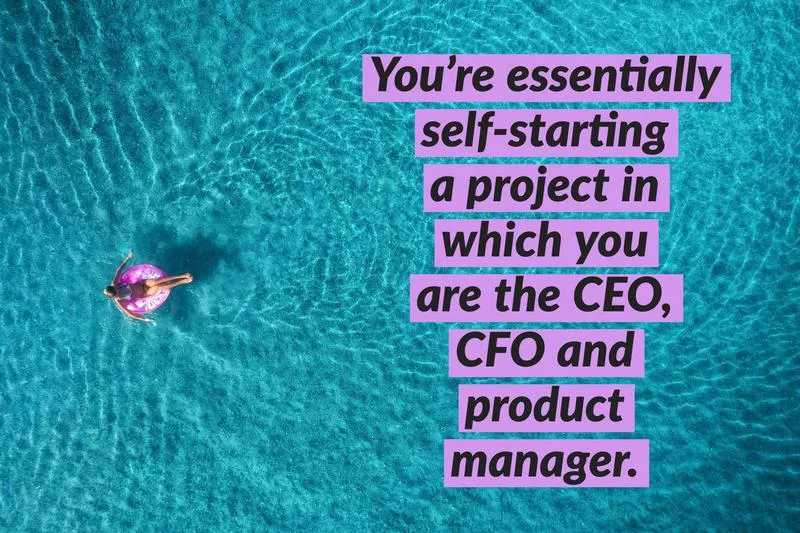
Getty Images
Achieving FIRE is all about the long game.
You’re essentially self-starting a project in which you are the CEO, CFO and product manager. This means constantly keeping track of your spending in order to identify inefficiencies, as well as measure how close or far you are from hitting your goals.
Many digital tools keep tabs on your money from every angle. Mint.com, for example, can be tied to your bank account and credit cards in order to automatically track where your money is going; it spits out fancy pie charts that help you digest your financial habits.
Money literacy isn’t just an important skill set to the FIRE community. It’s a real occupation, and one people engage in passionately.
